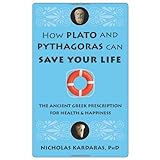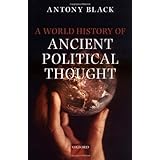
Average Reviews:

(More customer reviews)This book is a great introduction to the History of the Fertile Crescent, Greece, and Rome. Needless to say, the Romans get the most attention, but the coverage is good all around (Rome lasted longer anyway, right?). The translation into English is clear and, interestingly, flows well; you wouldn't know the book was originally in Dutch unless you read it in the copyright section. This is the text for the Greco-Roman civilization class I took at FSU, and most of the students in there paid like a hundred and twenty dollars for the hardcover edition. Can't say it's that great but buy this paperback if you would like a primer in Ancient History.
Click Here to see more reviews about: An Introduction to the Ancient World
Integrating the results of scholarly work from the past decade, the authors of An Introduction to the Ancient World, Lukas de Blois and R.J. van der Spek, have fully-updated and revised all sixteen chapters of this best-selling introductory textbook. Covering the history and culture of the ancient Near East, Greece and Rome within the framework of a short narrative history of events, this bookoffers an easily readable, integrated overview for students of history, classics, archaeology and philosophy, whether at college, at undergraduate level or among the wider reading public. This revised second edition offers a new section on early Christianity and more specific information on the religions, economies, and societies of the ancient Near East. There is extended coverage of Greek, Macedonian and Near Eastern history of the fourth to second centuries BC and the history of the Late Roman Republic. The consequences of Julius Caesar's violent death are covered in more detail, as are the history and society of Imperial Rome.Thisnew edition is:comprehensive: covers 3,000 years of ancient history and provides the basis for a typical one-semester course lavishly illustrated: contains maps, line drawings and plates to support and supplement the text, with updated captions clearly and concisely written: two established and respected university teachers with thirty years' experience in the subject areas well-organized: traces the broad outline of political history but also concentrates on particular topics user-friendly: includes chapter menus, an extensive and expanded bibliography organized by subject area and three appendices, an improved introduction and the addition of an epilogue.
Click here for more information about An Introduction to the Ancient World












